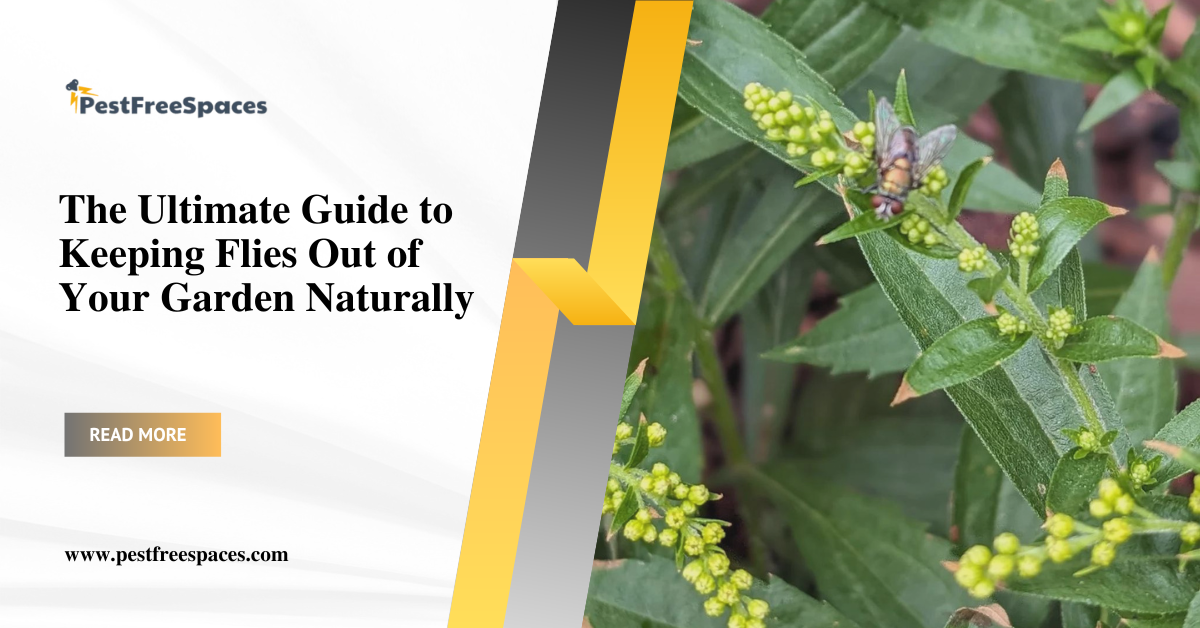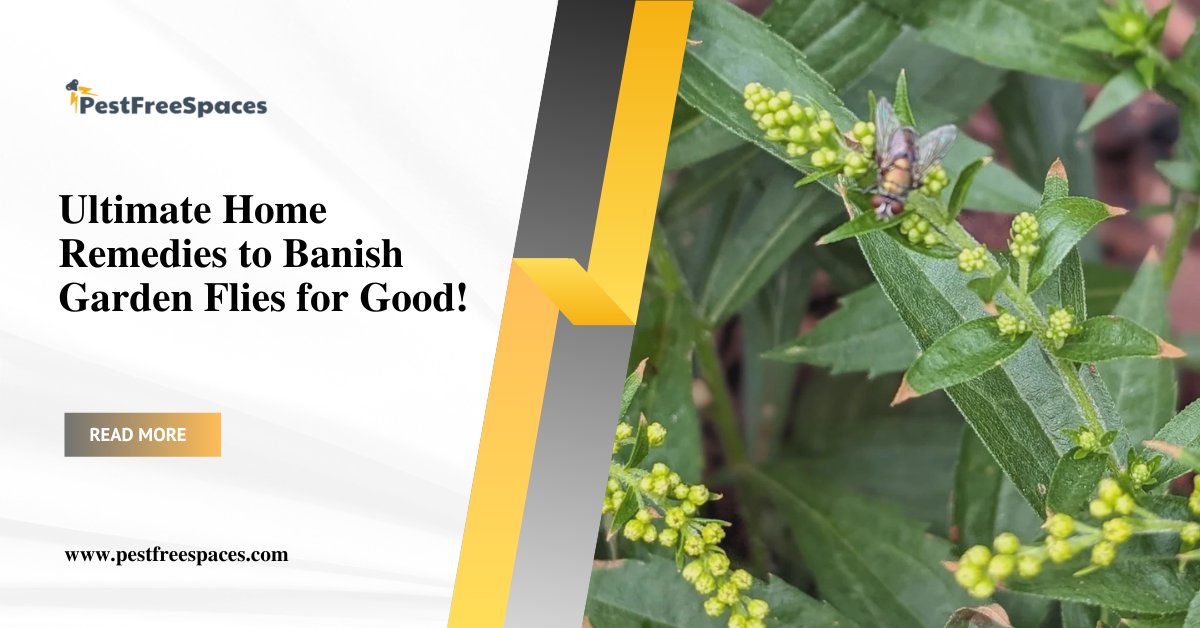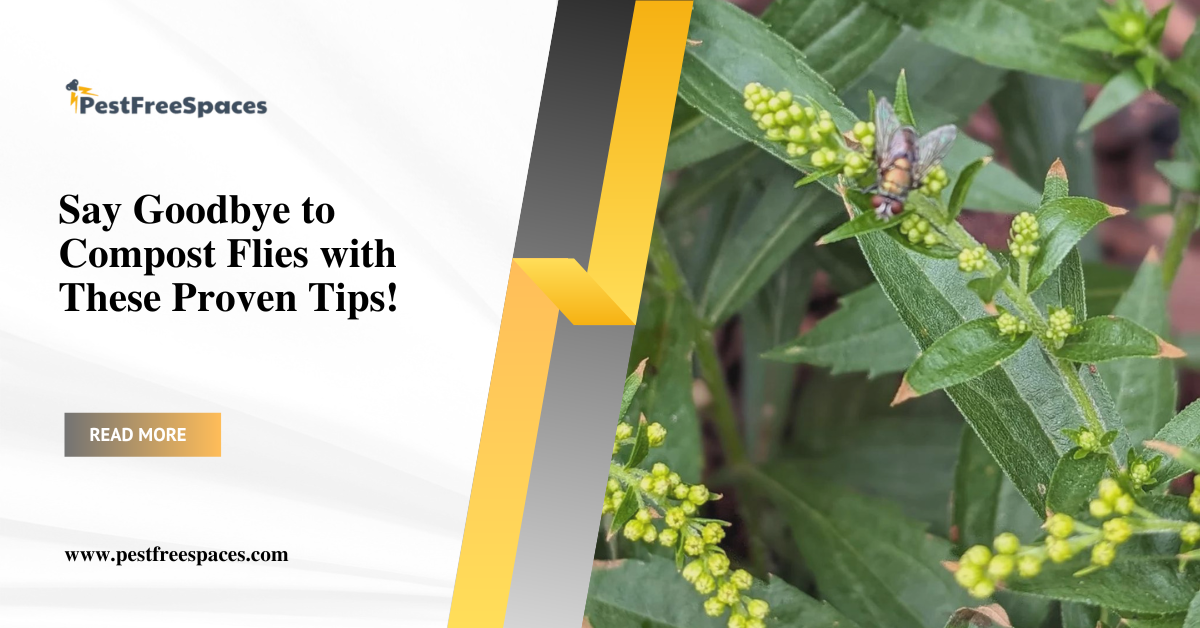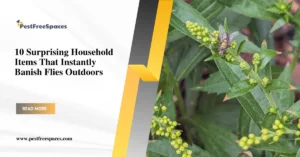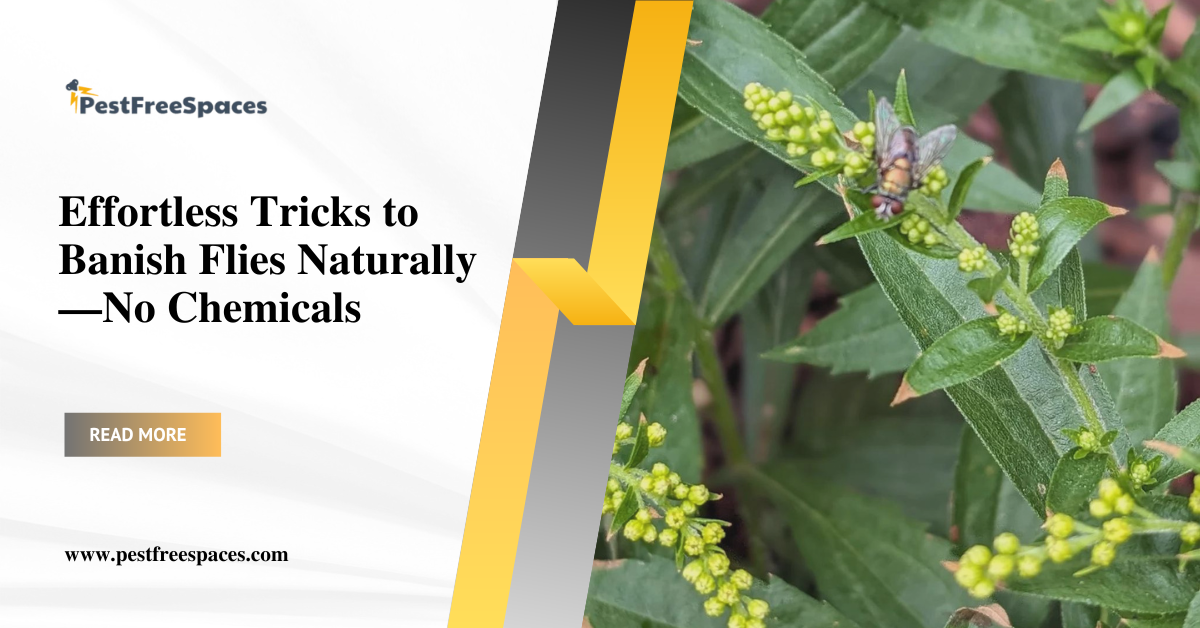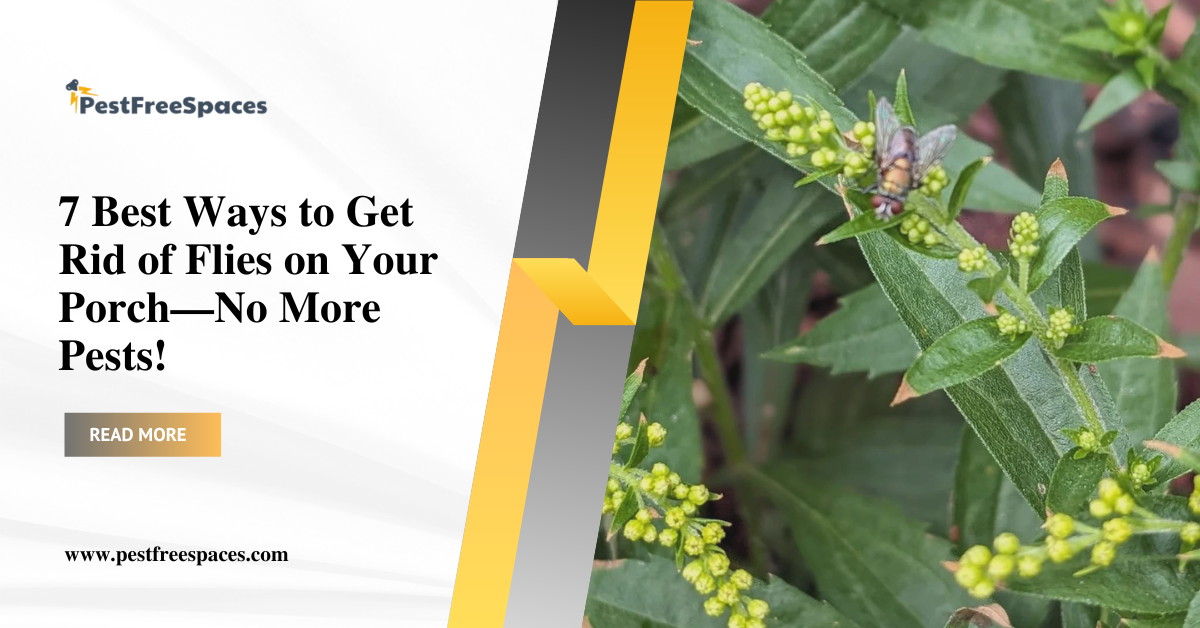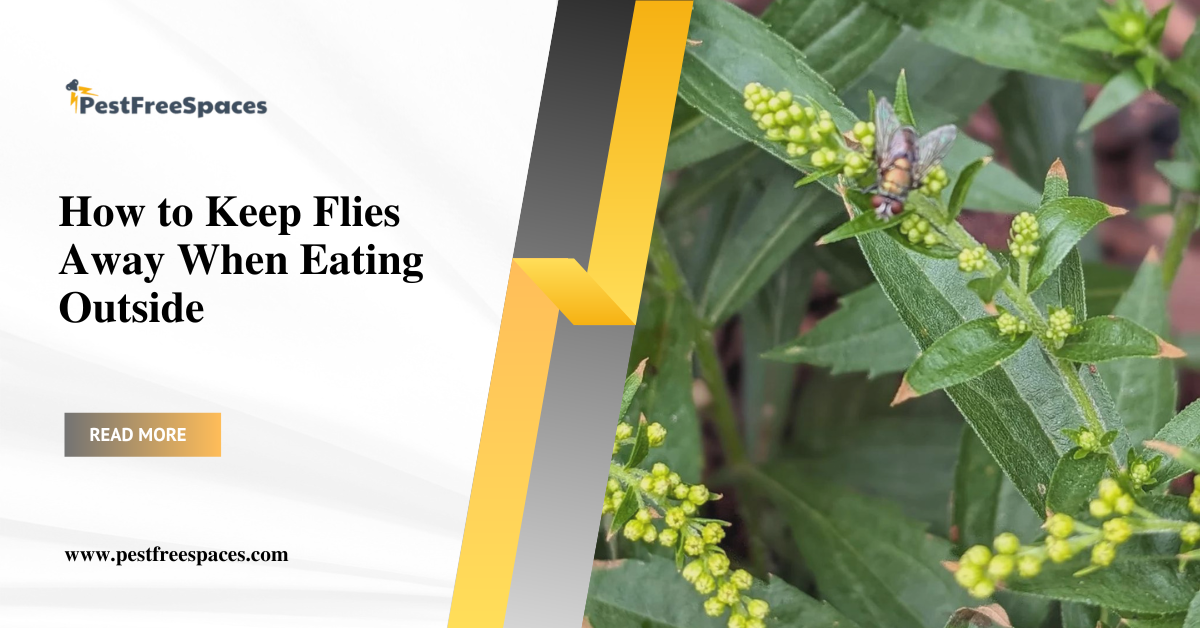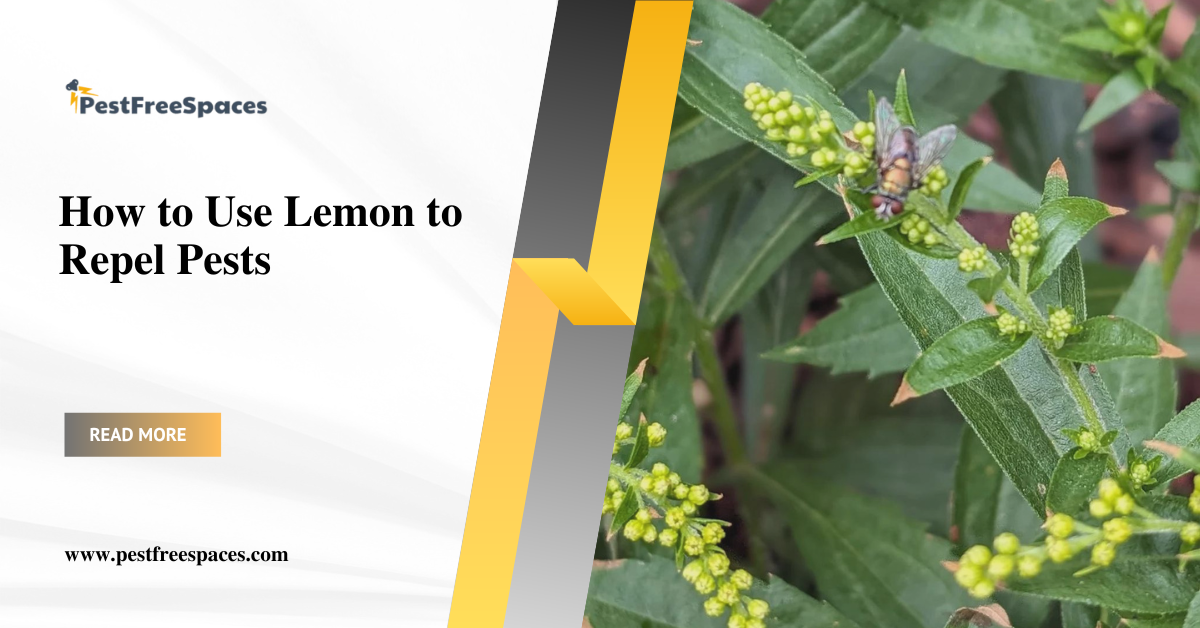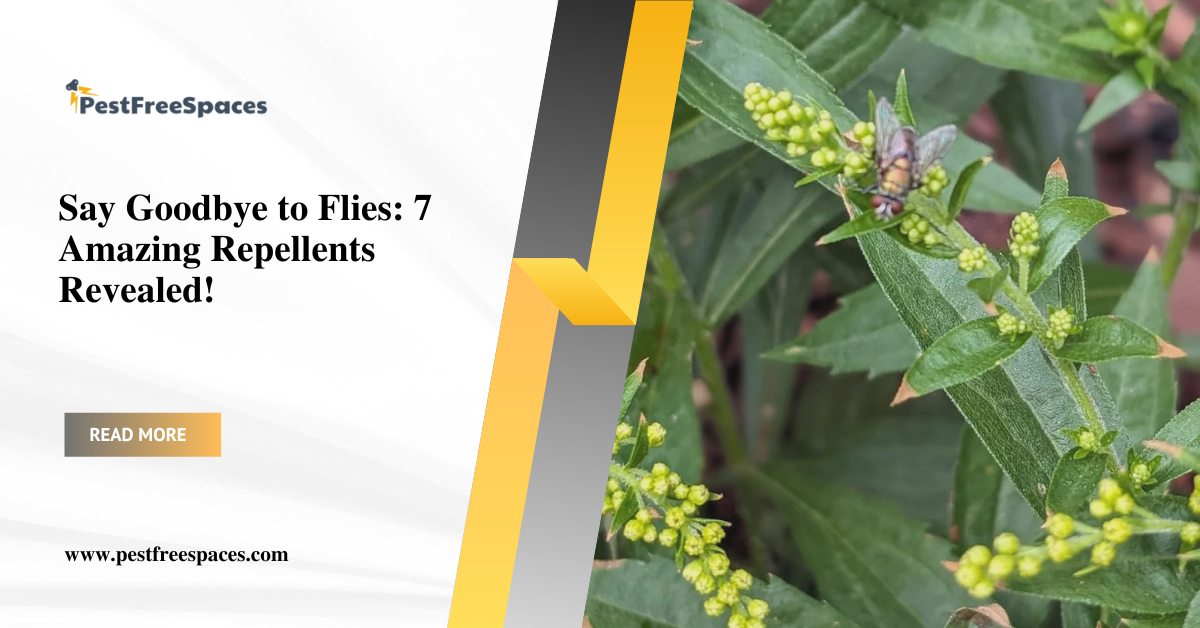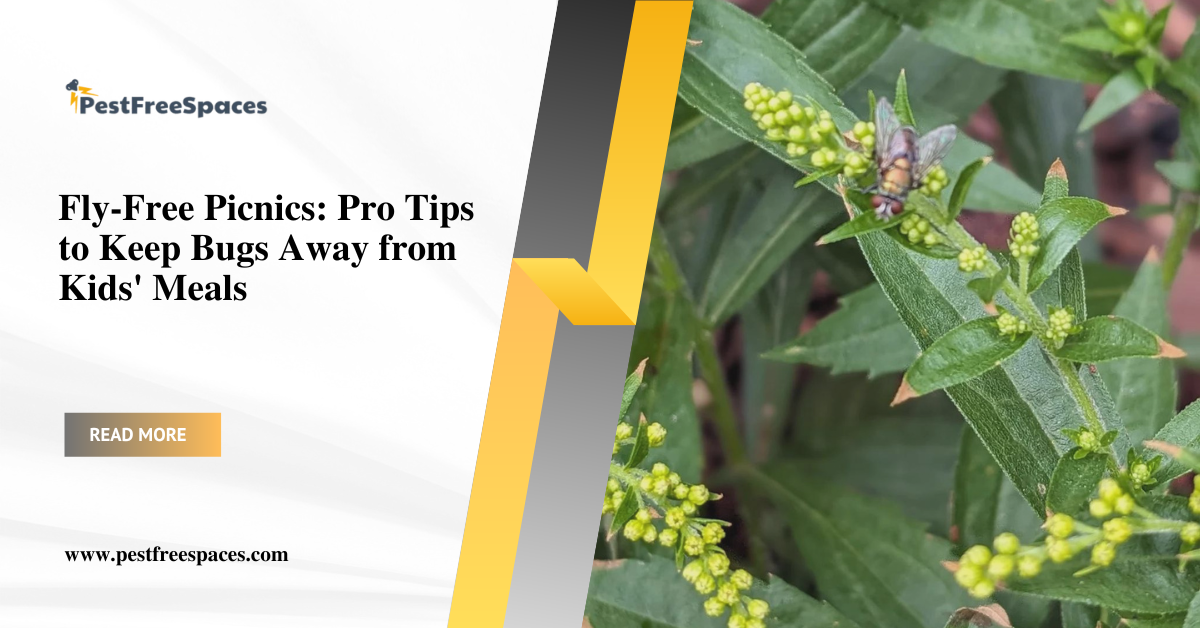If you’ve cultivated a beautiful garden, the last thing you want is for it to become a breeding ground for flies. These pesky insects not only disrupt your enjoyment of outdoor spaces but can also damage plants, spread diseases, and lead to infestations if left unchecked. This article delves into effective home remedies for garden flies, natural repellents, and preventive measures to keep your outdoor sanctuary pest-free.
Home Remedies for Garden Flies
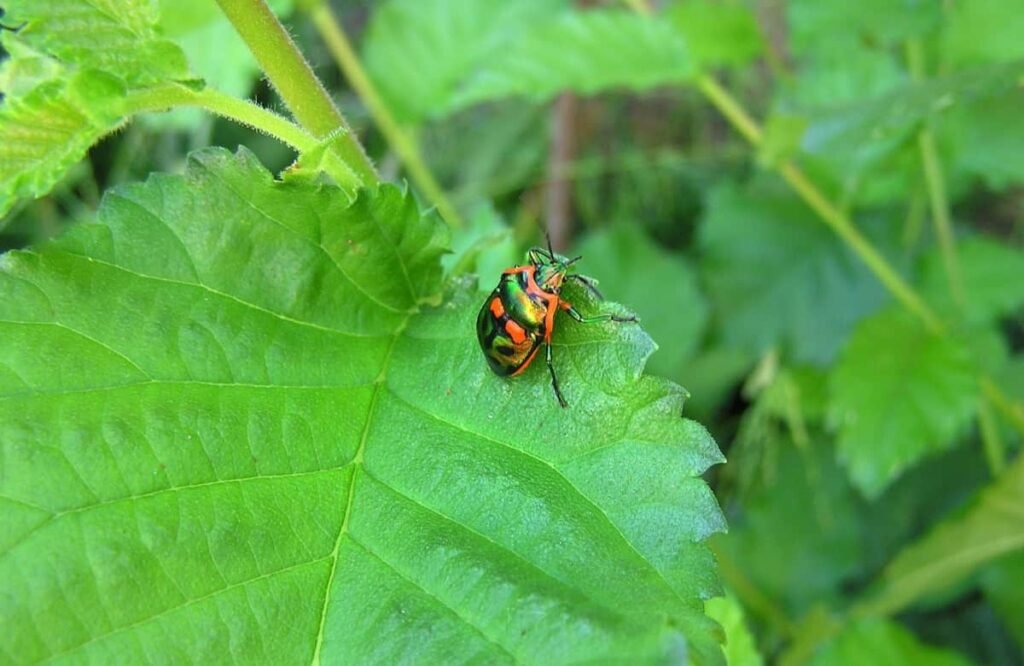
Understanding the Problem with Garden Flies
What Are Garden Flies and Why Are They a Problem?
Flies are a common nuisance, particularly in gardens where they can buzz and bite. Belonging to the Diptera order and the Muscidae family, common houseflies (scientific name Musca domestica) are typically ¼ inch long, gray in color, and possess translucent wings. They thrive in gardens, especially around decaying organic material and moist areas, where they find ample food sources.
Health Risks: Flies are known carriers of various bacteria and viruses, posing significant health risks by contaminating food and surfaces. They can spread diseases such as food poisoning, cholera, and typhoid fever. Flies lay their eggs in rotting organic matter, leading to rapid population growth.
Why Flies Are Attracted to Your Garden
Flies are drawn to gardens with food sources, waste, and moist areas. Potential attractions include compost piles, grass clippings, and pet waste.
Common attractions include:
- Compost Piles: A rich source of organic matter.
- Pet Waste and Animal Droppings: An excellent breeding ground for flies.
- Stagnant Water Sources: Pools, bird baths, and uncovered buckets serve as ideal places for flies to breed.
Flies can lay hundreds of eggs at once, which develop into maggots, further compounding the infestation issue. They are particularly active during dusk and dawn, often gathering around lights.
To effectively keep flies away from your garden, start by managing waste, maintaining cleanliness, and avoiding stagnant water sources.

Natural Remedies to Repel Flies
When dealing with garden flies, natural methods can help control their population without introducing harmful chemicals.
Apple Cider Vinegar Trap
- Fill a jar with apple cider vinegar and add a few drops of dish soap.
- Cover with plastic wrap and poke small holes.
- Flies enter, are attracted to the vinegar, and become trapped due to the broken surface tension.
Cayenne Pepper Spray
- Mix Cayenne Pepper with water in a spray bottle.
- Spray around your Garden to Repel flies; the Pepper’s Pungency irritates them.
Sticky Honey Traps
- Combine sugar, honey, and water to make a sticky mixture on strips of paper.
- Place the strips around the garden; flies are attracted to the sugary scent and become stuck.
Plant-Based Solutions: Herbs and Flowers
Many plants naturally repel flies with their strong scents. Here are a few plants known to deter flies while beautifying your garden:
- Basil: A popular herb that flies hate.
- Marigold: Produces a smell that keeps many pests, including flies, away.
- Lavender: Besides repelling flies, it adds a soothing scent to your garden.
- Mint: Planting mint near doorways and windows keeps flies from entering.
- Lemon: Citrus scents, particularly from lemons, are believed to deter flies.
By incorporating these plants, you can create an aesthetically pleasing garden while naturally repelling flies.
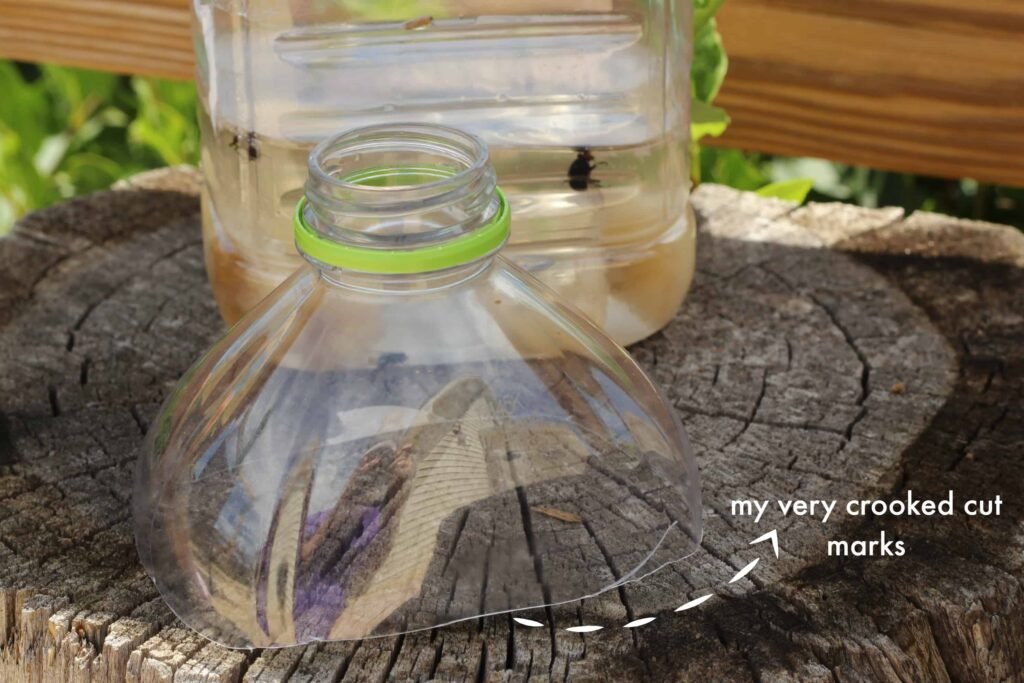
Homemade Fly Traps
For those who prefer DIY solutions, homemade fly traps are both effective and budget-friendly.
Fruit Fly Trap
- Place an overripe banana or another piece of fruit in a jar.
- Cover the jar with plastic wrap, poking a few holes.
- Flies enter, attracted by the scent, and become trapped.
Sticky Fly Strips
- Dip strips of paper in honey and place them around your garden.
- Flies are drawn to the sweet scent and are trapped upon landing.
Herbal Sprays as Natural Repellents
Herbal sprays using essential oils are highly effective at keeping flies away. Try these combinations for a natural, fragrant barrier:
Peppermint and Eucalyptus Spray: Mix a few drops of these essential oils with water and spray around garden entry points and seating areas.
Lemongrass Spray: Flies dislike citrus smells, and lemongrass oil is especially effective.
These sprays are not only effective but also safe for kids and pets. Reapply regularly, especially after rain or watering, to maintain effectiveness.
Preventive Measures to Keep Flies Away
Maintaining a clean and organized garden is critical for keeping flies at bay.
Regular Waste Removal
- Dispose of rotting plants, pet waste, and garbage promptly.
- Cover trash cans tightly and remove organic waste frequently.
Remove Stagnant Water
- Drain water from buckets, birdbaths, or any other containers to discourage fly breeding.
- Ensure garbage cans are tightly sealed and dispose of organic waste promptly.
Sealing Entry Points
- Check doors and windows for any cracks or gaps where flies could enter, and use screens to block access.
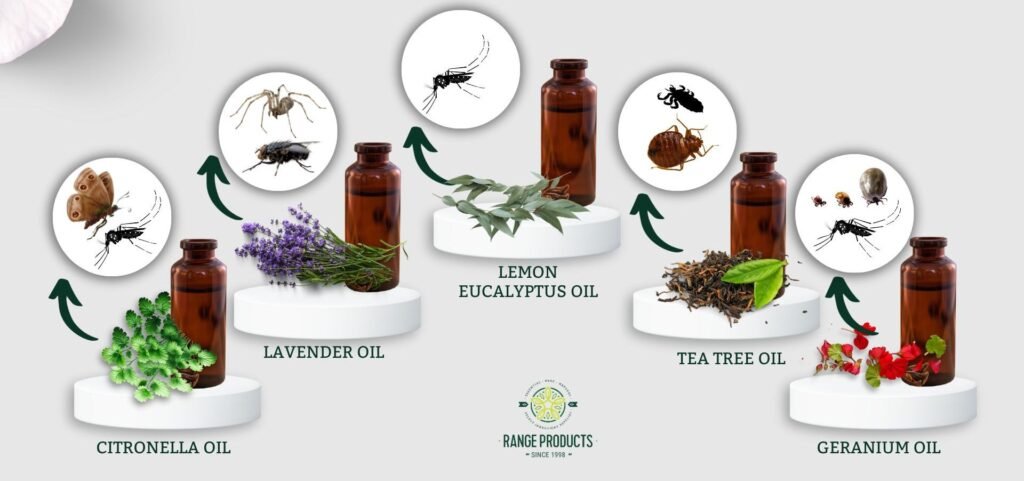
The Role of Essential Oils in Repelling Flies
Essential oils like peppermint, lavender, and eucalyptus have strong scents that flies detest. You can use these oils in two ways:
- Cotton Ball Method: Apply essential oils to cotton balls and place them strategically around your garden.
- Spray Solution: Mix essential oils with water in a spray bottle and apply as needed.
Utilizing Carnivorous Plants for Fly Control
Carnivorous plants such as the Venus flytrap provide a fascinating way to manage flies. These plants lure flies into specialized traps that close and digest the insect. You might also consider:
- Pitcher Plants: Capture flies and other insects in their tubular leaves.
- Sundews: Use sticky glandular hairs to trap and immobilize insects.
Environmentally-Friendly Light Traps
Using eco-friendly light traps can help capture flies without chemicals.
- Light Traps: Emit light that attracts flies and traps or kills them upon contact. Use these devices at dusk or dawn when flies are most active.
- Yellow Outdoor Lights: Yellow lights are less attractive to flies than white or blue light, reducing fly activity near seating areas.
People Also Asked About Repelling Flies
Do Flies Hate Mint?
Yes, flies find mint highly repulsive. Planting mint around doorways or using mint essential oil sprays can help keep flies away.
Does Lemon Repel Flies?
Yes, lemon’s citrus scent deters flies effectively. You can use lemon peels or lemon essential oil around the garden for natural fly control.
What Plants keep Flies away?
Plants like basil, marigold, lavender, and mint are excellent for deterring flies naturally.
How can I make a Natural Fly Killer?
A simple fly trap can be made with apple cider vinegar and dish soap in a covered jar. This mixture attracts flies, trapping them when they sink due to the dish soap.
Key Takeaways
- Cleanliness is Key: Maintain a tidy garden by promptly removing waste and organic debris.
- Natural Repellents Work: Use vinegar traps, cayenne pepper spray, and essential oil solutions for effective, chemical-free fly control.
- Plants Can Help: Basil, lavender, and marigold are beautiful and repel flies naturally.
- Consider Carnivorous Plants: Venus flytraps and pitcher plants can help reduce fly populations.
- Light and Color Matter: Choose yellow lights outdoors to deter flies, and incorporate fly-repelling colors into your décor.
By implementing these tips and tricks, you can keep your garden fly-free and enjoy your outdoor space without the nuisance of unwanted pests.
